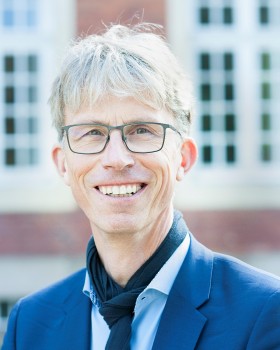
"Learning to take responsibility for the future"
In view of current social developments and global challenges – for example, climate change and world health – education for sustainable development (ESD) is becoming increasingly important. Education in this sense will, more than ever before, aim to empower people to think and act in a sustainability-oriented way and, at the same time, understand the effects which their own actions have on the world. ESD is part of the United Nations’ Global Sustainability Agenda 2030, which has 17 Sustainable Development Goals (SDGs) at its core which define the areas of sustainable development. ESD constitutes the core value of SDG 4 (High-Quality Education) and is also an important driver of the entire Agenda 2030, in particular because it addresses global competences for creating a sustainable future. These competences also focus dimensions of education for the 21st century – which include not only 21st century skills, but also knowledge, character and meta-learning. Acquiring such competences requires in particular adaptive learning environments – all through the educational process, from early learning to vocational training – with a view to personal development potential.

One important basis for this is the expertise that exists at Münster University in the field of research, teaching and transfer for supporting gifted students and developing potential in various areas. This can be seen in the participation by Münster University researchers in the initiative “Leistung macht Schule” (LemaS) set up jointly by the national and regional governments in Germany for supporting potentially high-performing school students. A key objective of supporting giftedness in school students is to empower young power to attain self-determined and sustainability-oriented participation in our society and to motivate them to actively shape our future with the common good in mind. The aim is that, by taking a critical look at key issues of our times (for example, environmental protection and fair trade), they will learn to take responsibility for themselves and for others for the future. This requires that school students should be able to develop their potential for self-determination, co-determination, collaboration, communication, cooperation and creativity. To this end, in LemaS schools in North Rhine-Westphalia, for example, project formats are designed with campaigns for sustainably shaping the future in line with the Sustainable Development Goals, with the extramural environment also being integrated.
These ideas will also be taken up during the 7th Münster Educational Congress on “Recognizing Potentials – Developing Talents – Making Education Sustainable” (22-25 September 2021). The Congress links the latest findings from giftedness research and talent development with current social developments and challenges. The aim of this year’s Congress is to combine on the one hand research approaches and support concepts aimed at a long-term development of school students’ potential with, on the other, the whole range of topics covered by sustainable education. In other words: What are the global challenges which the 21st century poses? And how – through a systematic, individual development of their talents – can we prepare a new generation to master these challenges in a committed, creative and constructive fashion? Proceeding from these key questions, and adhering to the idea of sustainable education, the idea here is to discuss ,firstly, how a long-term development of performance-related potential in children and young people can be achieved in the best possible way, and, secondly, how this potential and these talents can be harnessed in the best possible way to help to actively and responsibly shape the future.
Author Prof. Christian Fischer is Professor of Educational Science, with a focus on research into giftedness/individual advancement, at the University of Münster.
